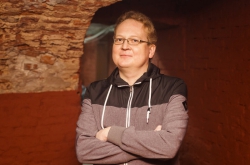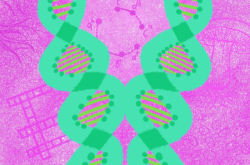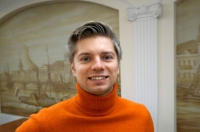Professor Carlos Cabal Mirabal started his research career in St. Petersburg when he became a student at the Leningrad State University (currently St. Petersburg State University). After receiving a degree in physics, he came back to Cuba but didn’t forget Russia — he has been keeping in touch with friends and colleagues for many years.
His studying experience was kind of academic mobility long before this term was invented. Mr. Cabal together with other high school graduates was sent to study in the USSR to become the first generation of physicists in Cuba. According to the agreements between the USSR and other communist states, many children from different countries came there to receive a degree at universities.
Last February Mr. Cabal Mirabal met with Pavel Belov at a conference in Havana. There, Mr. Belovtold him about the research activities at his laboratory. It turned out that interests of the professor and ITMO’s researchers coincided in the field of MR, as the International Research Centre for Nanophotonics and Metamaterials initiated an experiment devoted to improvement of MR imaging."I am sure that the team ledby Pavel will make a revolution in MR field," says the professor.

Carlos Cabal came to ITMO with a course of nine lectureson magnetic resonance and its applications. According to the scientist, students have to pay more attention to application of fundamentals. That is why his lectures were devoted not only to theoretical aspects of MR, but also to its applications. He also talked about the Cuban MRI project. Due to USA’s embargo against Cuba, this country couldn’t make economic contacts with America. It affected allfields including medical equipment.
Cuban researchers had to develop MRI from scratch. In such a strange way, the economic blockade made them succeed in MR development much more than researchers from many other countries.
The professor appreciated that Russian students have deep knowledge of theoretical issues in physics. However, he mentioned that local higher education system needs more practice-oriented classes. "Our country is smaller, it does not have many resources, so we always think how to apply any research theory to derive benefit and develop economics."
According to the professor, science doesn’t work without interaction between those who share knowledge and those who acquire it. Communication with students is the main thing. "I want them to learn the general issues through the specifics. So, I always use examples to explain something complicated." Apart from research issues, Mr. Mirabal also talksto students about the high goals of science — according to him, the main question each researcher has to ask himself is "How can I contribute? What are the possible applications of my research?"
As a person who came back to the same place but faced completely different country, he had specific view on the transformations covering all aspects of life. Despite all changes the scientist found out, he was happy to realize that something hasn’t changed — "people look at the future in a different way but they stay the same — strong but sensible. I want to come back here again to give lectures and conduct research together with my Russian colleagues."




